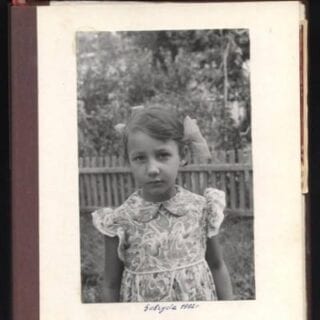Appt. 779
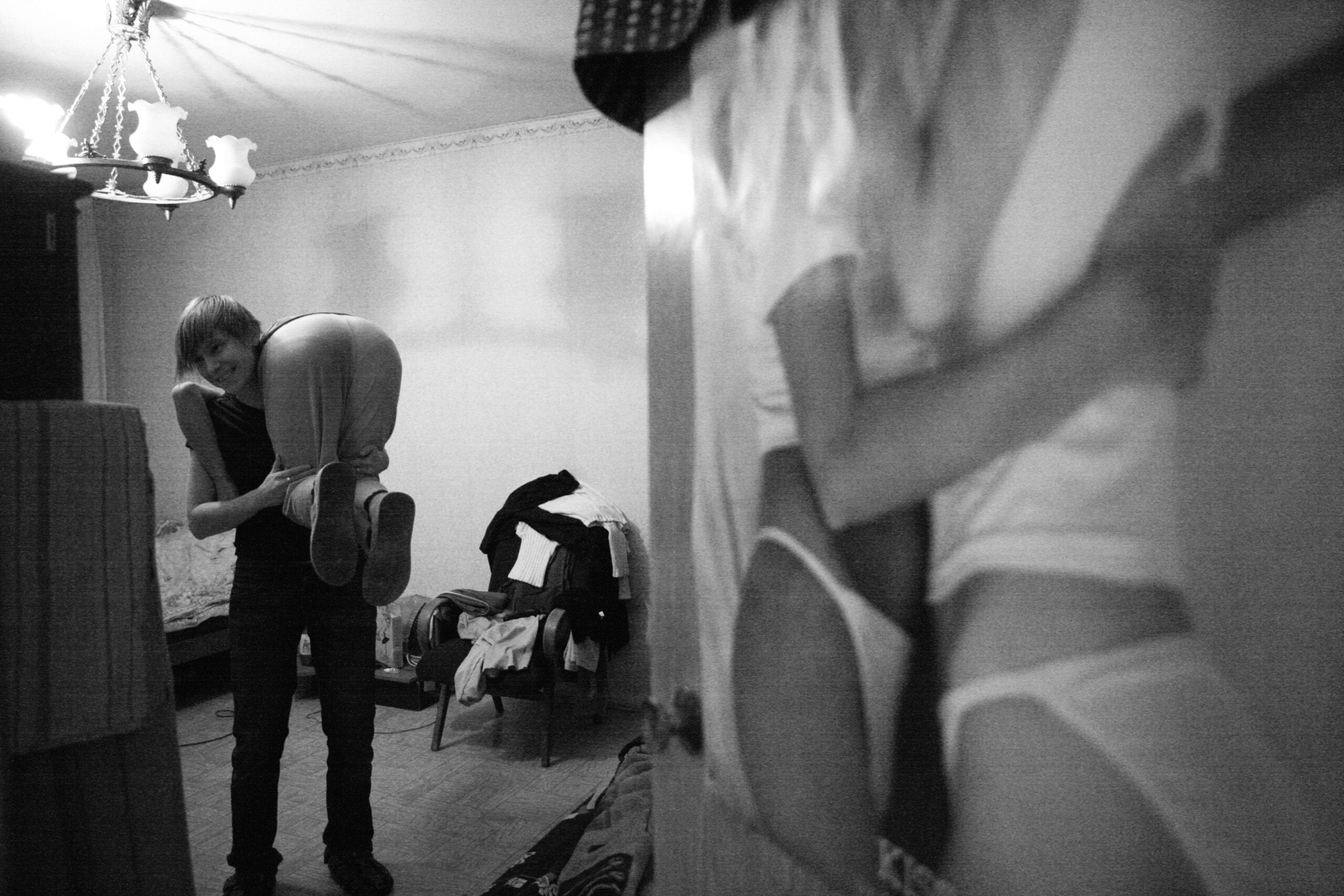
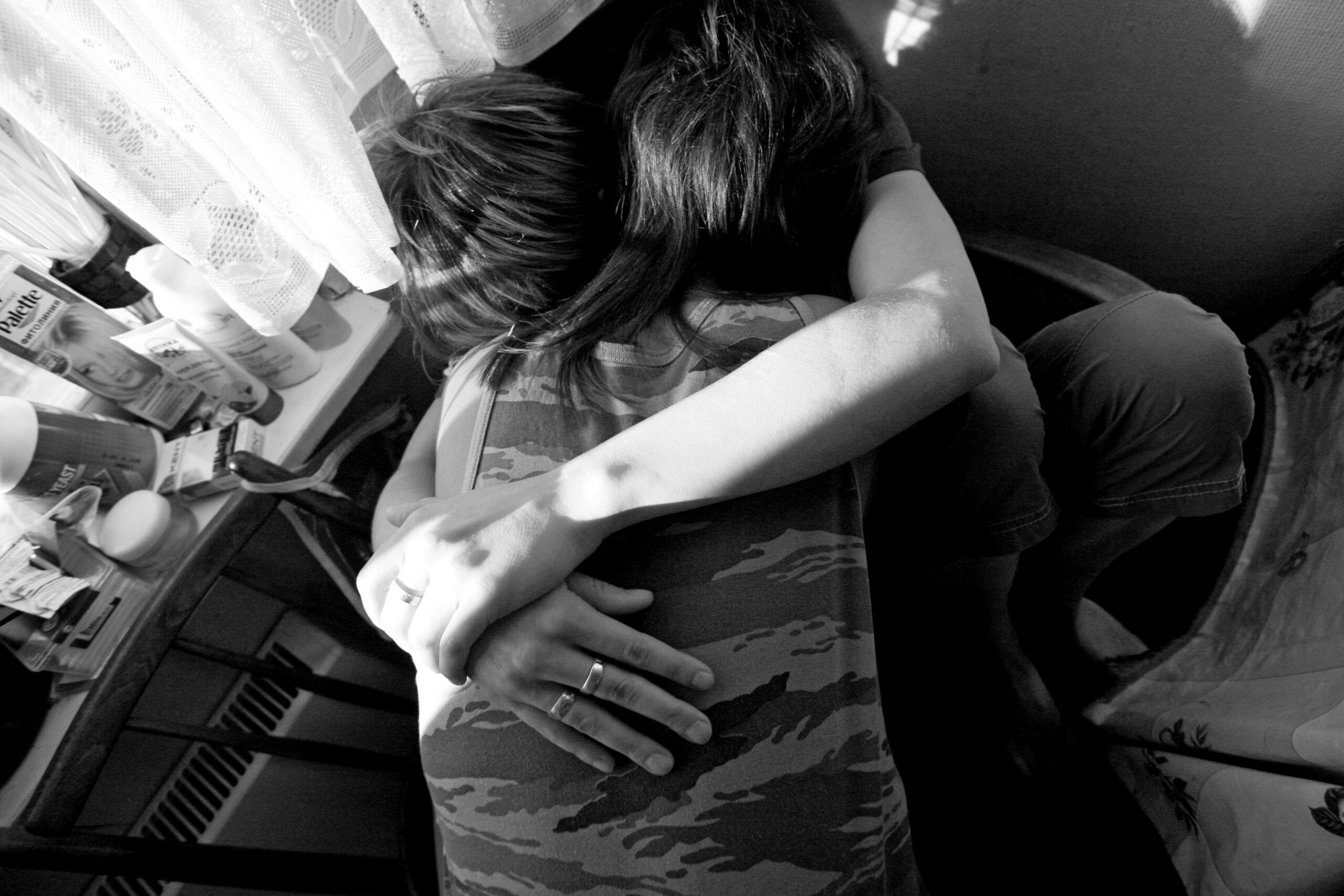
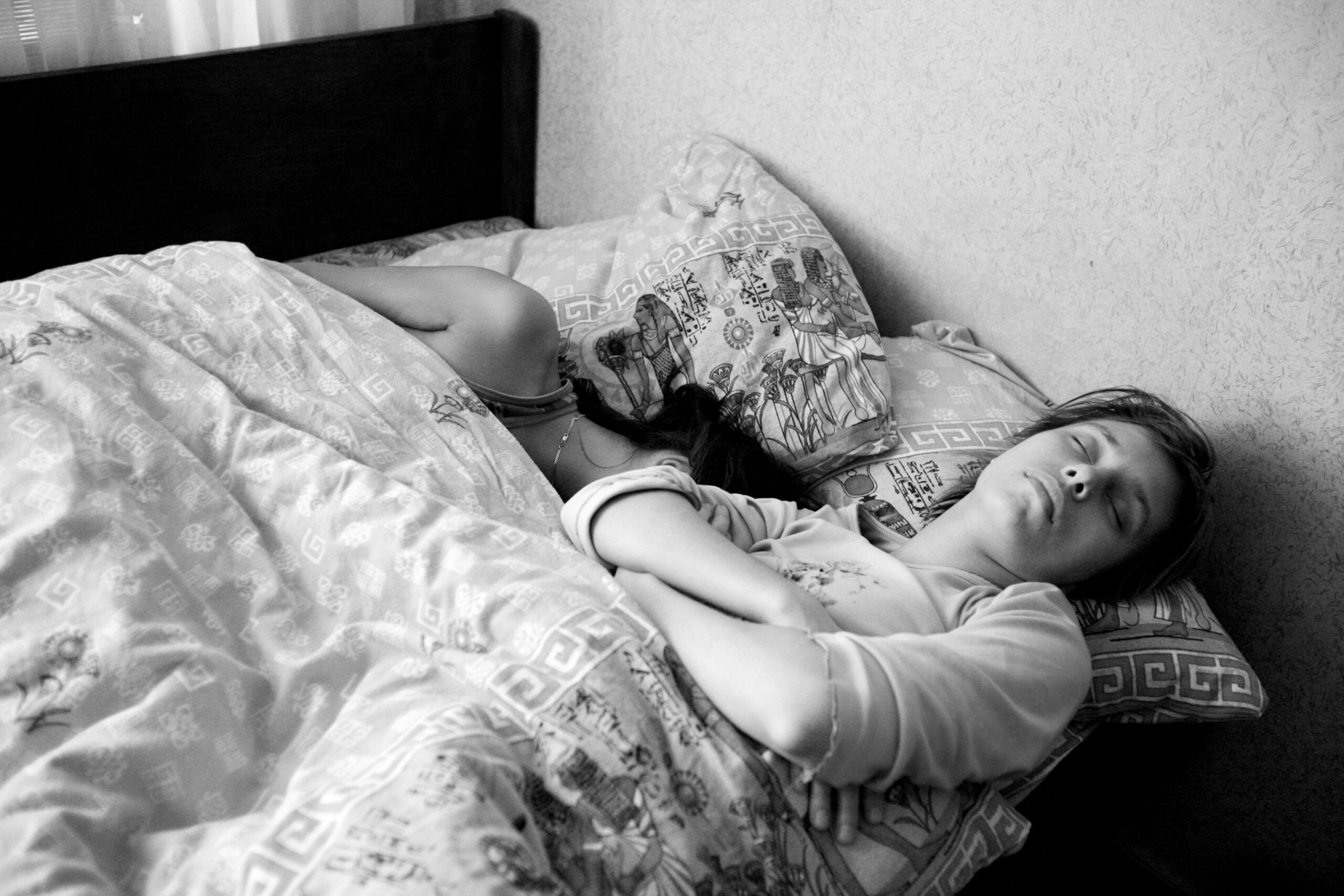
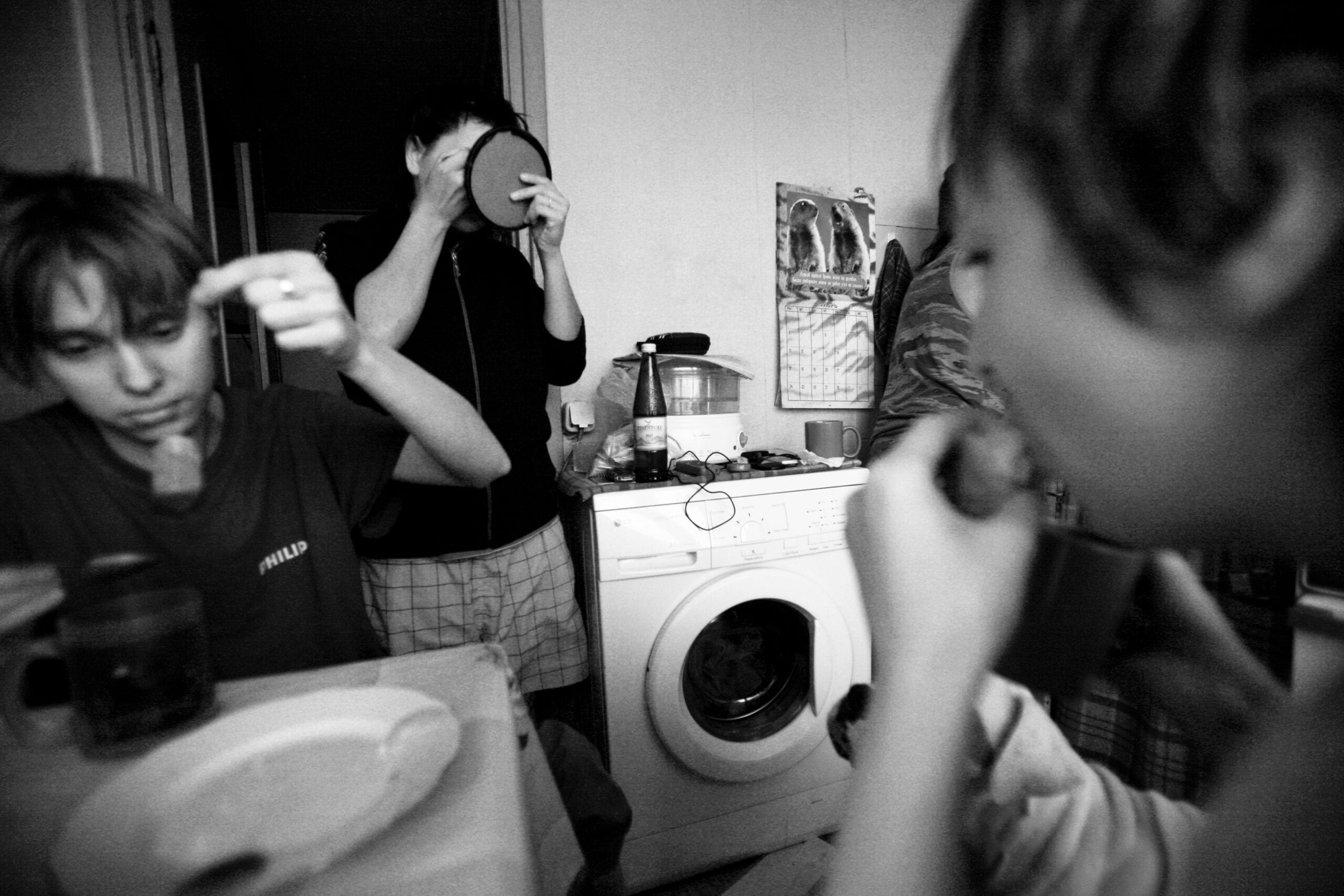
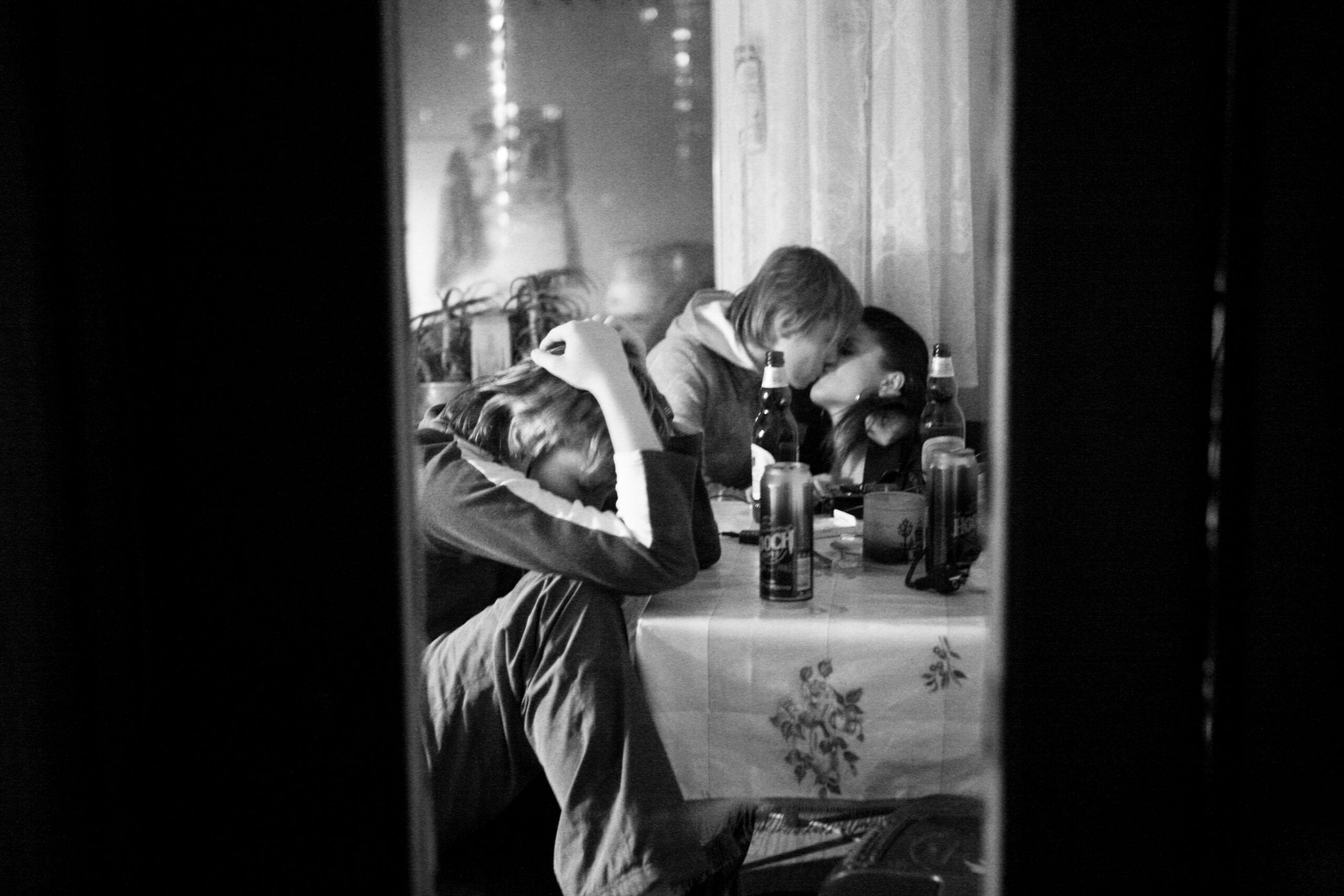
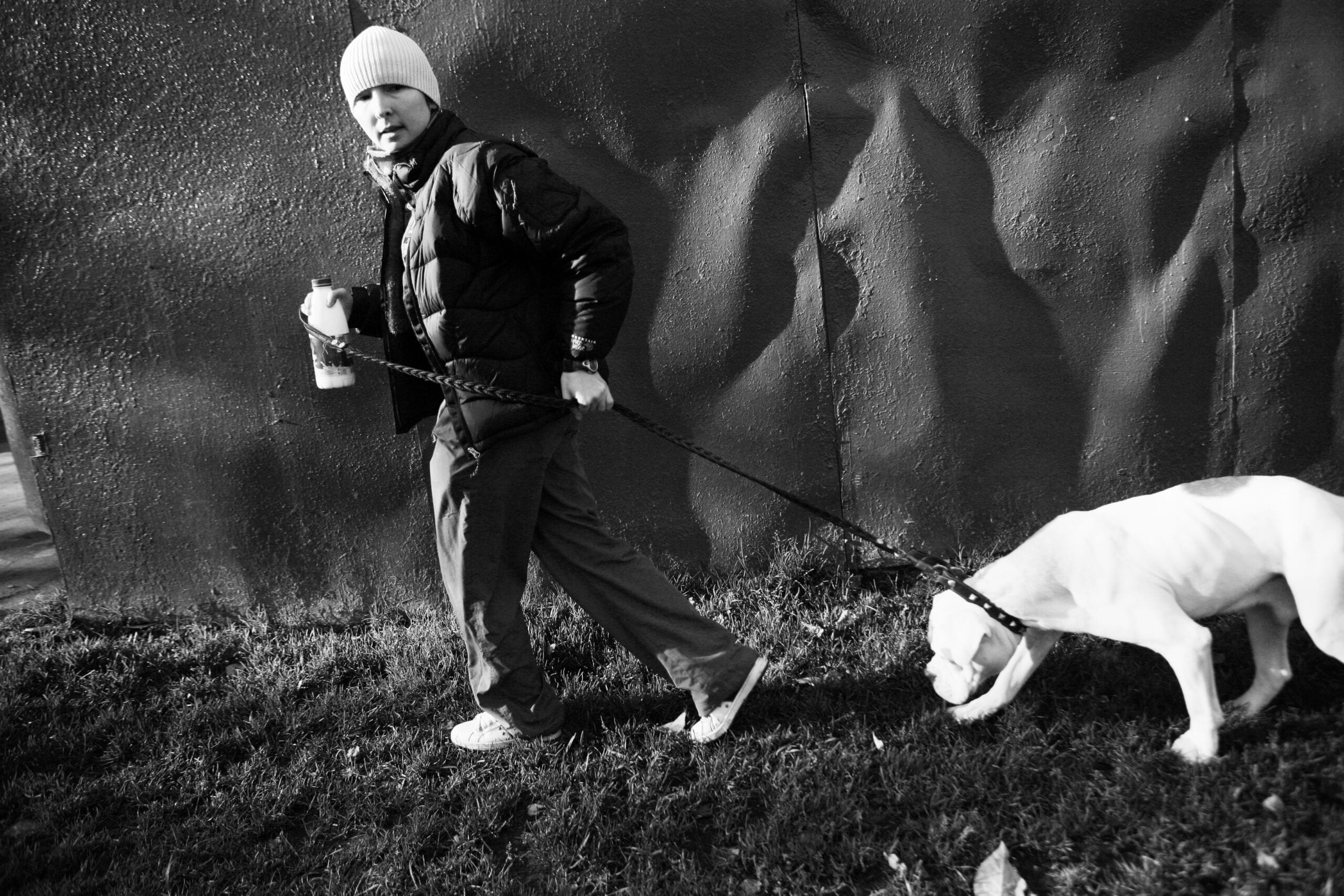
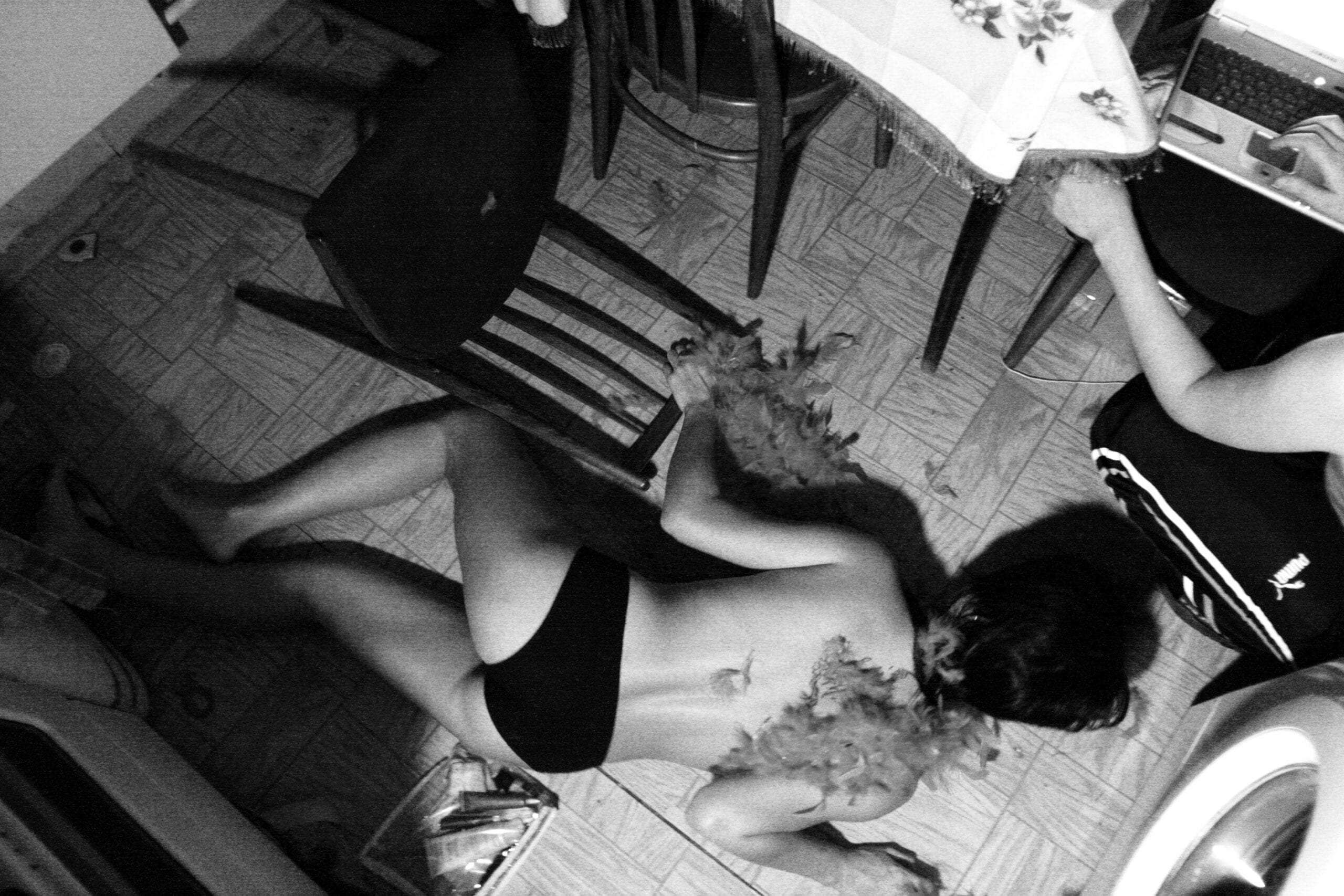
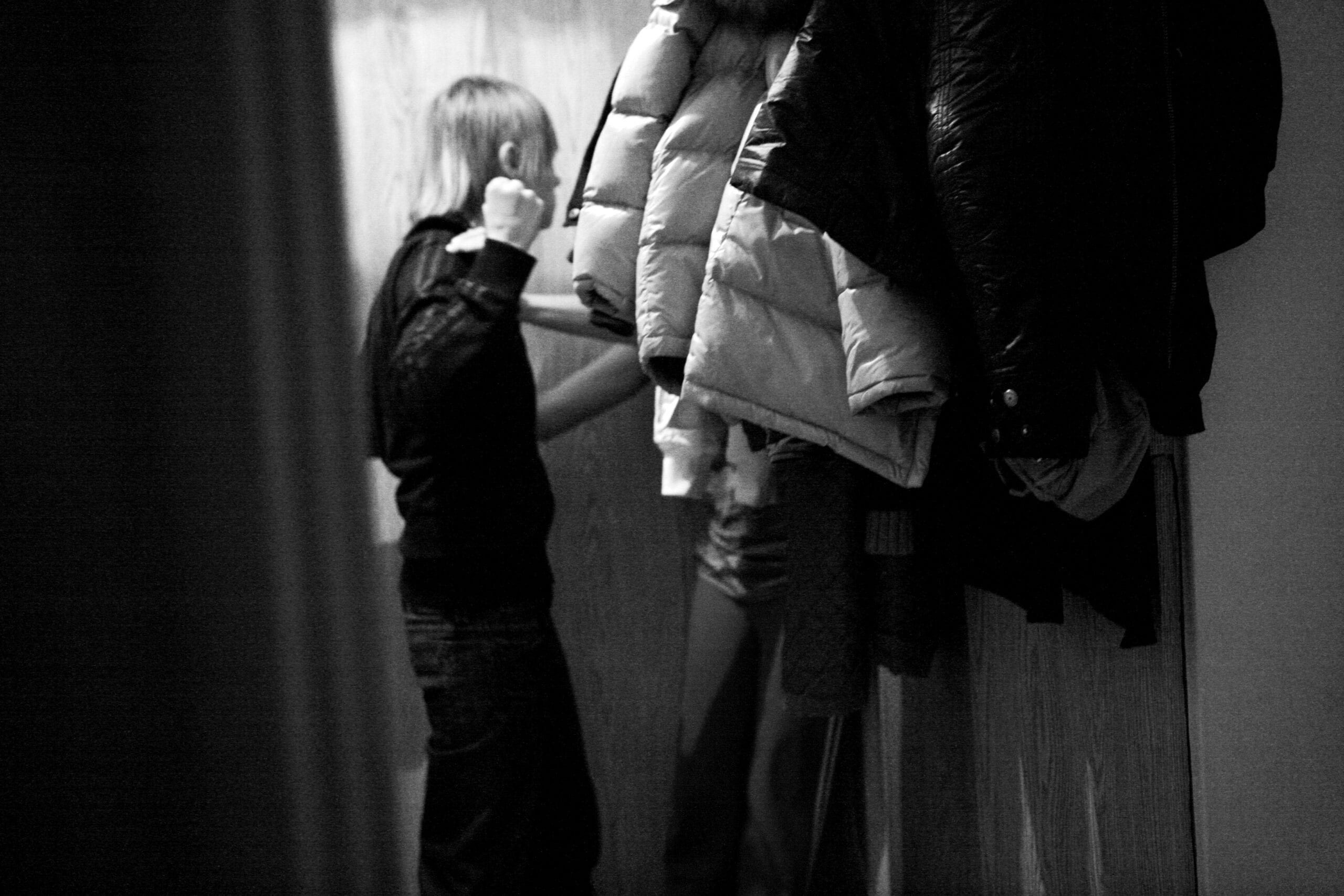
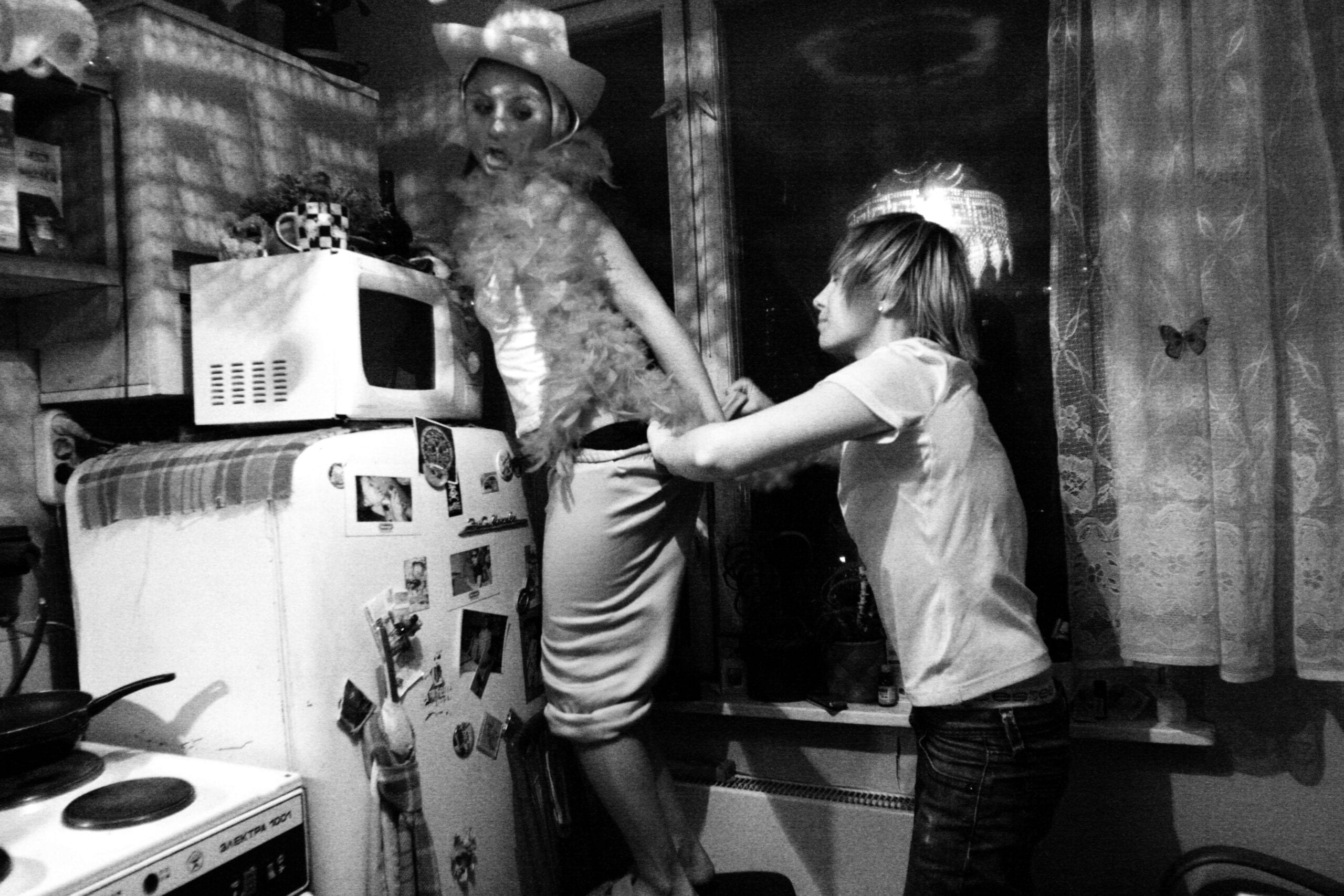
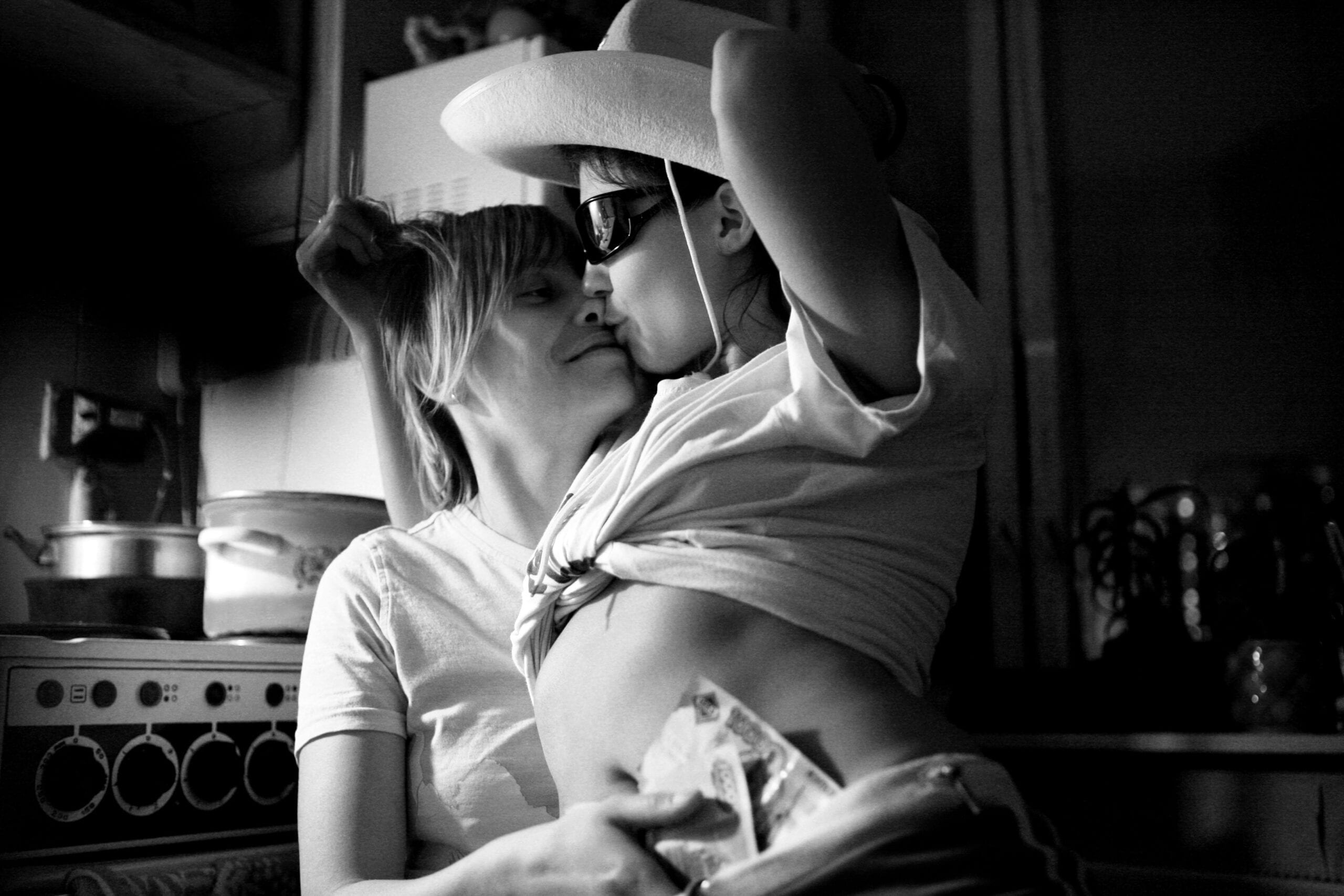
APT779 Story
I was invited to stay in Apartment number 779 in 2008, when I was just back after the war in Georgia, and had nowhere to stay during my work and study in Moscow. Apartment 779 was situated in a typical high-rise block with more than a thousand flats in it, in a far outskirt of Moscow, a “sleeping district” Orekhovo-Borisovo near metro Domodedovskaya.
The times when the neighbors went to each other to borrow sugar had passed. The flats were perfectly anonymous and the only times we saw our neighbors were when they came to complain about the noises we made during a party or a fight. That was a very special time.
Apartment 779 was rented by a group of lesbian friends. It reminded me more of a commune than just a shared student flat. At different times there were 5, 6 or even 7 girls in 2-room flat. We cooked together, had long evenings in the kitchen and watched films together. The girls worked in cafés or shops, with minimum income, and nobody knew about their private lives, which took place in night clubs or private apartments. Nobody from the commune experienced any direct discrimination – because they kept their life behind closed doors. Sometimes, when men asked girls from the commune for a date, it was a good reason to say “no”. In response, there was no aggression, only curiosity.
Inga (name changed) was the “mom” of the commune. She cooked often for the whole crowd such “luxurious” dishes as Italian pasta with mushrooms or Maasdam cheese, and took care of the house. She worked as a waitress, was paying the mortgage for her own house in her hometown, and sometimes lent money to other girls in the commune, who couldn’t pay their rent. She had time to take care of herself, went to the solarium and was proud of her physique. Her girlfriend Jenia (name changed) was constantly jealous of Inga’s extreme sexual attractiveness and that was her reason to get drunk, or use drugs, and beat Inga up. In the end those hot relationships broke apart, which made Jenia extremely sad and caused her to spend all her life at parties and on drugs.
I was sharing a room with my ex-girlfriend Emma (name changed), my first and strongest love. We were already apart for a long time. She was suffering from another broken relationship and heavy alcoholism, her dog was dying, and sometimes covering the whole apartment with vomit and excrement, which Emma had no time to clean. She was often away, travelling to and back from her hometown, while I was taking care of her dog.
We saw each other very seldom. I was busy with study in photoschool and work in a magazine, and the journey to the city center and back took me more than one hour each way. She was often working night-shifts in a small photo lab on the other end of the city. We slept together on a blue air-mattress; it was very uncomfortable, and gave us both a back pain, and we wanted to buy a new mattress from the first salary, which never happened, because money was spent on alcohol and food. Our mattress was losing air, and in the middle of the night we rolled close to each other… It reminded me a drowning ship in the middle of an ocean.
Emma’s dog was dying and one of the last moments (pictured) was when she was washing him in the communal bath. Soon after Emma had a severe emotional breakdown, when she argued with the rest of the commune, broke a CD-player and was expelled from the commune. I was the only one who supported her, but it couldn’t save the situation.
Soon the commune felt apart, I left for Amsterdam, other girls went to holidays in Crimea, where they met their future husbands. Inga is now living in her hometown, raising a son.
It was for sure the craziest time in my life. And sometimes I feel sorry that I was involved in the daily life of the commune so much and was too reluctant to raise a camera. I missed a lot of moments which could become pictures. When there was a fight I had to separate them instead of taking photos, and when there was love and tender moments, I preferred to withdraw myself and not to interrupt.
When I did take photos though, I felt clumsy and slightly guilty interrupting the flow of real life, and entering someone’s privacy. I knew no rest, because I was photographing at work, at school and even at home at nights and weekends. I knew no borders between public and private.
The life in the commune was before Russia’s famous anti-gay laws, but already then it was hard to open up in the public. However, the most difficulties and the most attention was concentrated not on communicating with the outside world, but on building relationships with each other. All the members of the commune were struggling to be happy in their private lives, to build successful strong relationships. But they existed in the heavy atmosphere of a small isolated world, with a lot of tension. Every day comedies could be easily transformed into dramas, and often people changed partners and were unfaithful. It was a ghetto in which the members closed themselves off voluntarily, for the feeling of security. It had no exit, no light in the end of the tunnel, and the life dramas were so overwhelming, that people acting in them, forgot that these were circumstances of their own creation.
There is a lot of discussion about social problems and human rights. It is important, of course, to feel accepted by the rest of society but Russian society is becoming extremely conservative, and there is no option to be accepted or understood, legally as well as socially. Maybe there is even something exciting – to have a secret, something precious that you protect from outside world; something which dies when it sees light. That’s why it needs to be kept in the darkness. These personal relationships are always unique and can’t be categorized, that’s why it’s so difficult to struggle for the right to reveal them.
Irina Popova

